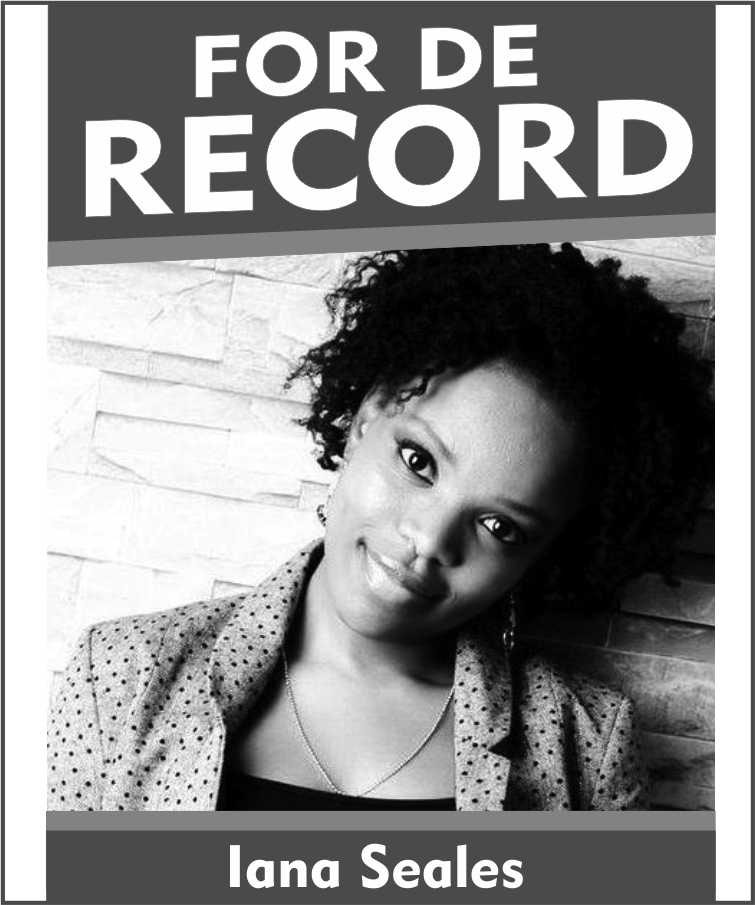“The majority of us are responsible for the kind of barbaric, lawless society we have today… We have become so disconnected from the sufferings of our neighbours that we are no longer able to recognise how their suffering is connected to the collapse of social peace and law and order in our society.’
Every year, there are a series of reports in the press about police brutality and misconduct. The majority of these reports are discounted because the families are too busy surviving to pursue justice. Recently, the Colwyn Harding case made the news and his mother – despite the hardships- has decided to take on a system which she says preyed upon her son instead of protecting him.
 The allegation that a police constable viciously sodomised Harding with a baton has been denied, as expected, and there has since been a string of reports challenging Harding’s claims. At the official level, we have been told that Colwyn Harding’s injuries resulted after an operation for an incarcerated inguinal hernia. This was the information conveyed to members of the National Assembly by Minister of Health Dr Bheri Ramsaran after he was questioned about the case. “The juxtapositioning of the claim or the complaint of the sexual assault need[s] to be taken in this context,” the Minister said.
The allegation that a police constable viciously sodomised Harding with a baton has been denied, as expected, and there has since been a string of reports challenging Harding’s claims. At the official level, we have been told that Colwyn Harding’s injuries resulted after an operation for an incarcerated inguinal hernia. This was the information conveyed to members of the National Assembly by Minister of Health Dr Bheri Ramsaran after he was questioned about the case. “The juxtapositioning of the claim or the complaint of the sexual assault need[s] to be taken in this context,” the Minister said.
In other words, it would be wise for the public not to rush to any conclusions based on what Colwyn Harding said. But what did Colwyn Harding say? The young man, who police said was under suspicion for allegedly breaking and entering a home, told his mother that during the police operation on November 15, 2013 he was beaten and then sodomised with a baton by a police constable—his account was detailed and graphic.
The case has given rise to a number of important considerations in our society. Above all: the need for justice to be seen as a collective pursuit and not an individual struggle. We live so passively in this country that many of our brothers and sisters are violated almost every day before our eyes and we say nothing and do nothing.
There is no collective and consistent movement for justice in our country, with the exception of Linden on occasions. There is much we could learn from Linden–the people’s strong sense of community spirit, social solidarity and the fortitude to challenge unjust policies and repressive systems. We live so disconnected from others that matters like the Colwyn Harding case surface in the press and we allowed them to deprive us of our capacity for speech—we read about it but that is all.
We say nothing publicly about the culture of police violence meted out against poor youths in our society. We hear calls for an independent investigation but don’t add our voices, and we somehow cannot find the time to stand in solidarity with his mother and other concerned citizens who held peaceful vigils in the wake of the allegation.
The majority of us are responsible for the kind of barbaric, lawless society we have today. We allow the police to set the genitals of a young man alight and never say a word publicly about how inhumane such actions are and that they have no place in our society. We read about reports of women being beaten and murdered and we say, “That’s terrible” then move onto the next report on the newspaper page or on the website. We have become so disconnected from the sufferings of our neighbours that we are no longer able to recognise how their suffering is connected to the collapse of social peace and law and order in our society.
The Colwyn Harding case has given rise to a number of other considerations. There is the issue of justice and how his mother has been fighting to bring the matter to the attention of the authorities in the days after she was told. This woman, Sharon Harding, managed to contact none other than the Commissioner of Police around December 13, 2013 and the matter at this point was supposed to have been under investigation by the police.
Sharon Harding watched as her son’s condition worsened and she went from making prison visits to hospital visits. She also informed the press about the alleged assault and it was only after the case received national attention that the police apparently started taking her complaint seriously.
Watching the top brass of the Guyana Police Force address the Colwyn Harding case was difficult and troubling—it was clear from their press conference on January 16 that the big ones treat citizens with the same level of disrespect that has come to be synonymous with the force. The Commissioner by his own admission knew of the case in December but he passed the matter onto to Divisional Commander George Vyphuis, who said it was at the Complaints Section at Brickdam. The case apparently stayed at the Complaints Section until the media publicised it.
The police force’s explanations about how the Colwyn Harding complaint was handled failed to reassure us that matters concerning police abuses and excesses are treated seriously. In fact, we learnt that the Commissioner passed the case onto to a Commander and he passed it another officer and that was pretty much the investigation. That is, until Sharon Harding alerted the press and the police realised that the matter was about to go public.
What also needs to be considered is what any counsellor or social worker would testify to: the fact that sexual violence imposes silence. Women and men have many reasons to hide that they have been raped—it is a stigmatising experience. Therefore, if Colwyn Harding had a difficulty in reporting the alleged rape this is understandable.
He said this in a Stabroek News report on January 19: “When I go in prison fus and I told them about the assault, they were making laugh off of me,” he said looking shyly at his hands as he spoke. “I told them I was assaulted by police but them ain’t even wait… I didn’t even get to finish meh statement. They laugh at me.”
Finally, the Colwyn Harding case throws a spotlight once again on the frightening abuses of authority and exercise of violent power by rogue members of the Guyana Police Force. These excesses have over the years weakened the force’s democratic credentials and its image as a law abiding state institution.
At present, the image of the force is in tatters and increasingly people are growing to distrust the police. State apparatuses like the force cannot spiral out of control without a collective chorus of outrage from us citizens. We cannot turn a blind eye while the police conduct a campaign of murder and cruel beatings against protestors, youths, suspected criminals and other citizens.
The case brings this issue of collective responsibility and individual accountability to the fore. When we hold officers such as the constable in this case to account for his individual actions, do we also consider how his alleged actions are more far reaching than that single case? In other words, he is the product of a system that is broken, repressive and out of control and while we hold him to account for his alleged actions it is important to examine the system he is a part of.
When we address the question of who was responsible for the alleged assault we need to look at who is allowing the current repressive police culture to thrive. If we are going to condemn the police constable let us also in the same breath condemn those who are in a direct relationship of command – this includes Commissioner Brumell, the high ranking officers under him and by extension, the Minister of Home Affairs.
Have a question or comment? Connect with Iana Seales at about.me/iseales

